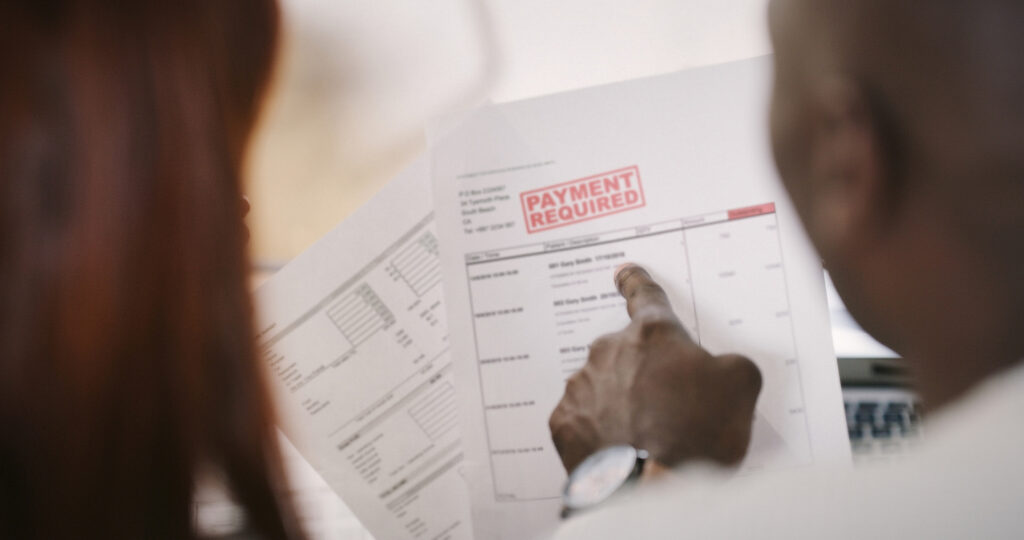You may have come across non-disclosure agreements (NDAs) – also called confidentiality agreements – in various commercial contexts; for instance, when you start your negotiation with your partners about a collaboration or distribution agreement, or a merger and acquisition transaction. However, perhaps you have always been sceptical about what it actually does or you never quite sure whether you need one.
This guide looks at key areas of NDAs, including the key principles, as well as enforcement and their application in cross-border corporate and commercial context.
What is a non-disclosure agreement?
NDAs regulate the rights and obligations of the parties or their employees and advisers by requiring them to keep certain information confidential and not to use it except for the purpose for which it is disclosed or disclose it other than in exceptional circumstances.
Typically there are two types of NDAs:
- one-way; or
- mutual NDAs.
In the one-way agreement, there will be only one party who will be disclosing information and the other party only receiving the information, so the confidential obligations will be solely rested upon that disclosing party.
However, in the mutual agreement, two or multiple parties may be simultaneously disclosing or receiving confidential information to and from each other and thus confidential obligations arise whenever a party is receiving the same.
Why do you need a non-disclosure agreement?
In the context of commercial discussions, you will inevitably find yourself disclosing certain information to the other party to the transaction you are contemplating before you are ready to agree on the terms of that transaction, whether as part of a formal due diligence process or as part of the discussions to agree on terms.
Without an NDA, you can’t be sure that the confidentiality obligations of a receiving party will certainly arise, as it will depend on whether it meets a so-called ‘three-limb test’, as a result of the landmark ruling in Coco v AN Clark (Engineers) Ltd [1968] F.S.R. 4155 from the High Court of Justice. These three limbs are:
- The information itself must have the necessary quality of confidence.
- The information must have been imparted in circumstances importing an obligation of confidence.
- There must be an unauthorised use (or misuse) of that information to the detriment of the rights holder.
In respect of the second limb, the most reliable method to impose confidentiality obligation is by entering into a stand-alone NDA. The NDAs should therefore be signed as early as possible, ideally before the discussion or negotiation even begins and any information is disclosed. Having a well-crafted NDA in place ensures that the parties have binding obligations to keep what they receive confidential.
It is also worth remembering the benefit you would obtain from generally having a clear definition of some key concepts, such as ‘confidential information’ and ‘permitted purpose’ which can be best achieved by putting them down in black and white in a stand-alone written contract.
On top of the above, NDAs also have an indisputable deterrent effect with a series of enforcement measures which we will touch upon in the next part.
What is classed as confidential information?
Confidential information is information which does not fall into the remit of “public property and public knowledge”, i.e. the information that remains secret or only known by a limited number of people. It is therefore crucial to carve out the scope of confidential information as precisely as possible, i.e. to cover all the information a party may disclose. Having said that, this does not mean that the definition should be as broad as possible, as it may not be upheld by courts if it is too wide.
Labelling the information as ‘confidential’ or encrypting it will not necessarily give the ‘confidential’ status to the information that is not inheritably confidential, but they are helpful steps in maintaining the secrecy of the information.
Typical examples of confidential information include:
- a formula
- a method
- a recipe
- customer lists
- product information
- know-how; and
- trade secrets.
You may also need to consider any extended forms you may want to cover in the NDAs, for example, the information, finding, data or analysis derived from the confidential information that is already included in the definition of ‘confidential information’.
Remedies for a breach of a non-disclosure agreement
There are a number of practical challenges in evidencing that disclosure of confidential information was caused by, or is about to be caused by, a breach of the confidentiality obligations in an NDA. For instance, it would not be enough to show that confidential information had leaked, you will need to show that it has been leaked by your counterparty. In addition, the information must have the necessary quality of confidence and that would, for instance, require that it is part of a body of confidential information, such as a document.
However, if you have good evidence, enforcement action can be taken. The common remedies for a breach that has occurred are damages or account for profits.
The measure of damages in confidentiality cases is somewhat arbitrary, it could be the cost that the court considers one would have to pay to obtain a licence to access confidential information on a hypothetical basis.
Far preferable, if the leak is threatened or suspected but has not taken place or is taking place over a period of time, is an injunction to stop the leak. This can be obtained ex parte within a matter of hours or days and is effective immediately (see below regarding cross-jurisdiction issues).
But how is an interim injunction or a final judgement enforced if your counterpart is not based in the UK? Without effective enforcement or urgent relief measures, your NDAs are toothless.
Consider the jurisdictions involved
As a UK-based company, you may be naturally inclined to have your disputes resolved in a UK-based court, but bear in mind that it may not bring you that peace of mind as you would have hoped – the judgement that is rendered by a UK-based court in your favour may not be enforced automatically in the other region where your counterparts reside. This means it may take years to see through the process of recognition and enforcement of foreign judgements before it can be enforced locally by a foreign court, meaning that you may end up out of pocket as the legal costs involved in achieving that could be astronomical.
Take China as an example. Say that you are about to start negotiating a distribution agreement with a distributor based in China, but before that, you want to put in place an NDA to protect some key information of your business which may be shared during the negotiation (in this case it could be your marketing material and strategy, or the list of existing customers and contacts in China, or technical information about your products that you want to keep secret).
Because there is no bilateral treaty or convention for recognition and enforcement of judgements between China and the UK, foreign judgments can only be recognised and enforced based on the principle of reciprocity, which basically means if there has not been a precedent where English courts actually recognised and enforced Chinese court judgements, it is unlikely to happen the other way around.
It is worth mentioning that the most recent ruling of Shanghai Maritime Court handed down on 17 March 2022 is the first time Chinese court recognises English commercial judgement. However, it remains to be seen to what extent, if at all, this ruling will actually encourage more English judgements to be recognised and enforced in Mainland China.
The impact of Brexit
You may face the same issue if your counterpart is based in EU. Prior to Brexit, English injunctions and judgements were automatically recognised and enforced within the EU. This is now no longer the case and the position of recognition and enforcement of English judgments in the EU states falls back to the combination of much less generous regimes, namely the Hague Convention regime, reciprocal enforcement regime, or via national law of the enforcing state.
In other words, UK companies will need to factor in a potentially much longer period and extra costs, plus a great amount of uncertainty when it comes to enforcement of interim injunctions or judgements rendered by English courts before a foreign court, including seeking legal advice of the law of the enforcing state.
How could you use arbitration?
One way to improve your position is to nominate an arbitration centre instead of the English courts as a dispute resolution forum. There are various reputable international arbitration centres, such as London Court of International Arbitration (LCIA) and International Chamber of Commerce (ICC).
One of the benefits of international arbitration is that the arbitral awards, interim or final, can be enforced directly in another member state via the New York Convention. As of the date of this guide (June 2023), the New York Convention has 172 state parties throughout the world, including the UK, all EU Member States and China and the awards made in any of the state parties will, through due procedures, be recognised and enforced in another member state, unless exceptions apply.
Again, if your counterparts are based in Mainland China, you may want to meet them in the middle by opting for Singapore International Arbitration Centre or Hong Kong International Arbitration Centre – either of them always seems to be an option that works for all parties. Since 1st October 2019, an arrangement between Hong Kong and Mainland China has been made to enable Chinese courts to grant interim measures to support certain Hong Kong arbitration proceedings, including assets and conduct-related preservation measures, both of which will aid significantly in the enforcement of your NDAs in Mainland China.
Summary
Whenever you are at a point of sharing information with your counterparts in a commercial context, pause and consider the consequences were this information to be shared with your competitors without your consent and ask yourself what measures you would want to take to prevent or minimize the negative impact of such a leak on your business.
When the worst comes to the worst, have you got an effective legal mechanism and basis to stop unauthorised disclosure, and maximize the chance and scope of a successful damage claim?
We’re here to help
Our corporate and commercial law team is comprised of experienced lawyers who have deep insights into all aspects of NDAs, as well as the implications of certain terms in a cross-border context.
If you need any guidance or support with drafting or enforcing a non-disclosure agreement, then contact Jing Wang.







